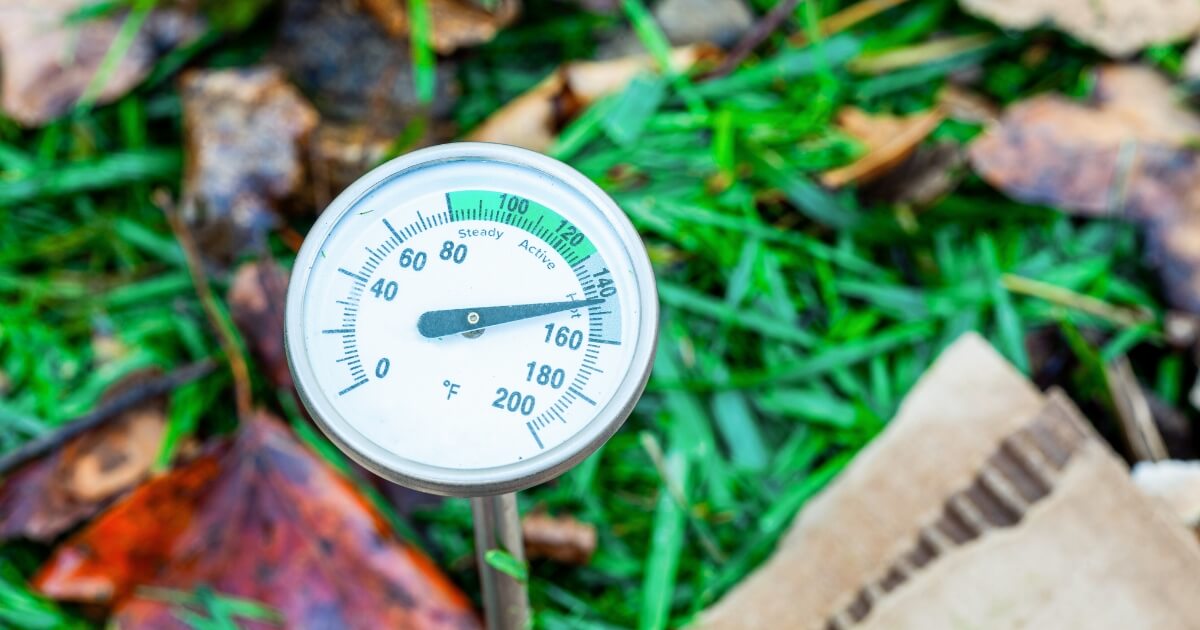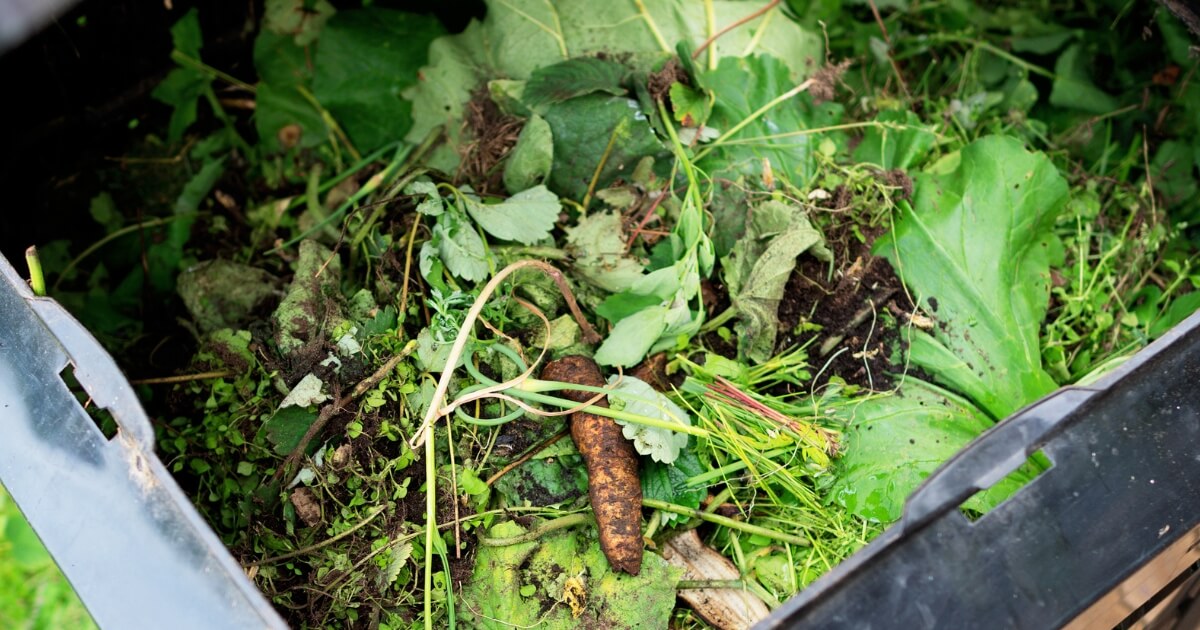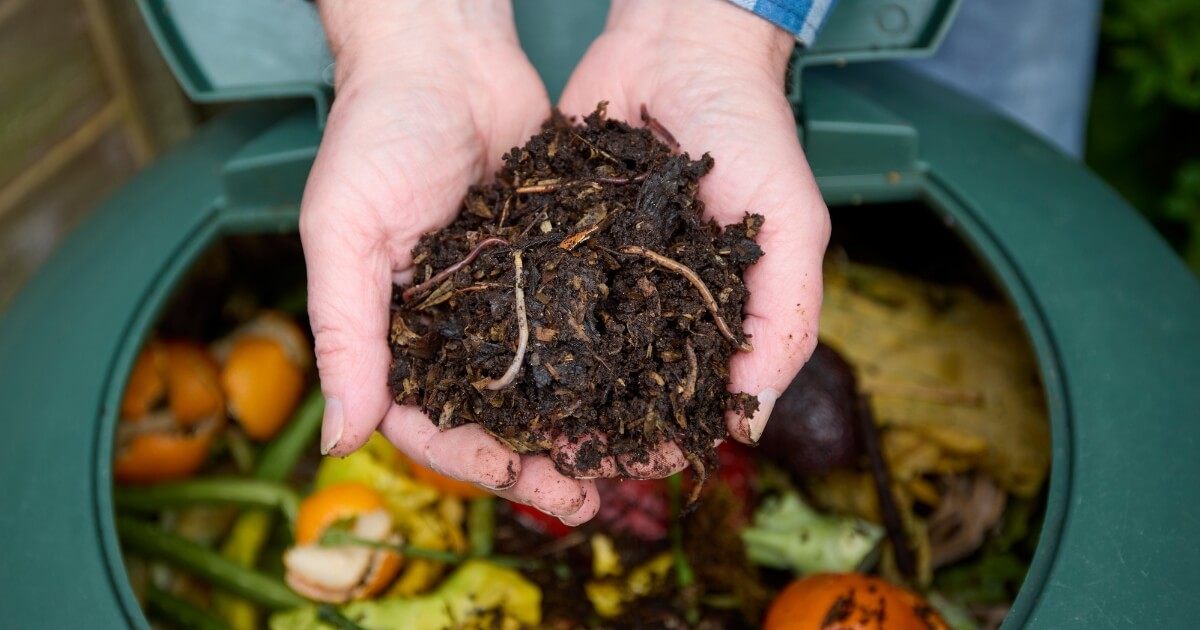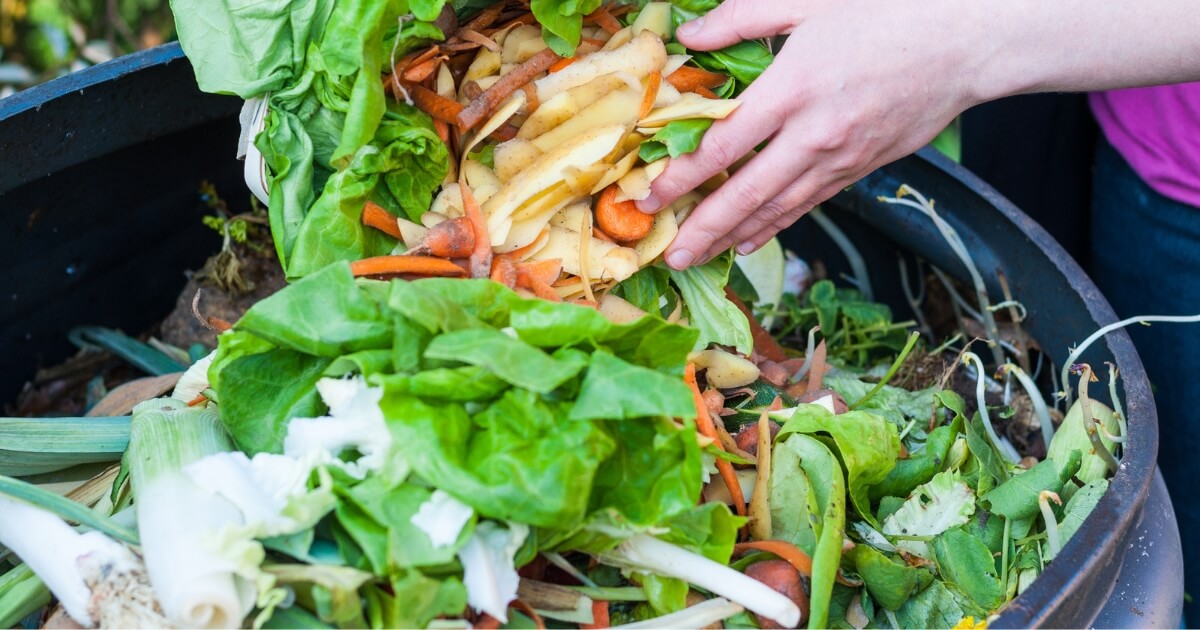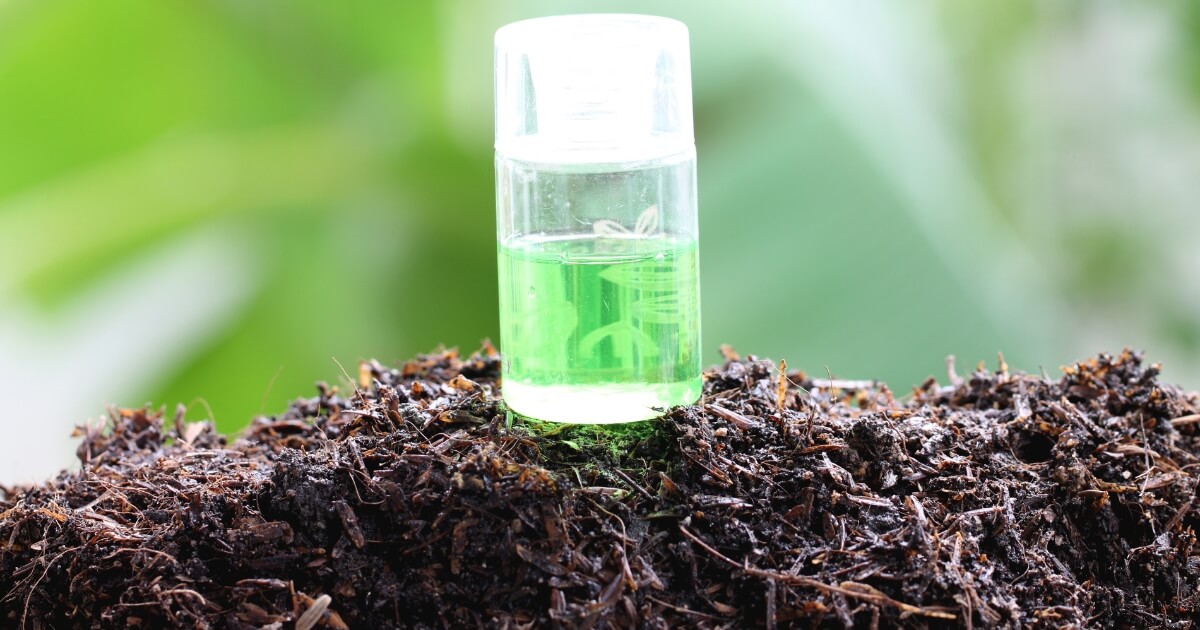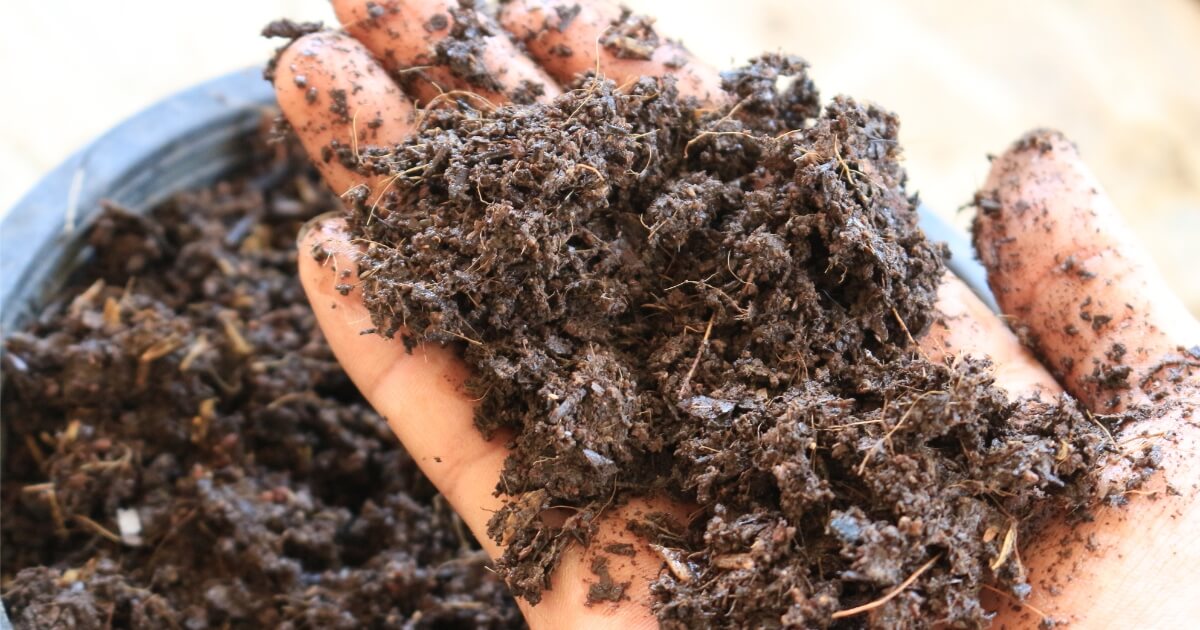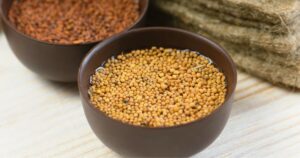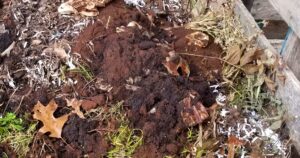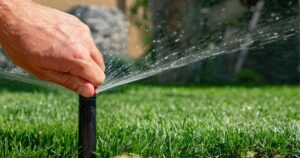Is there a way to jump-start a compost pile?
Yes, you can purchase a compost starter full of beneficial microbes to increase the composting process. Using a starter means you don’t have to wait for nature to build a colony of microorganisms in a new compost pile or bin.
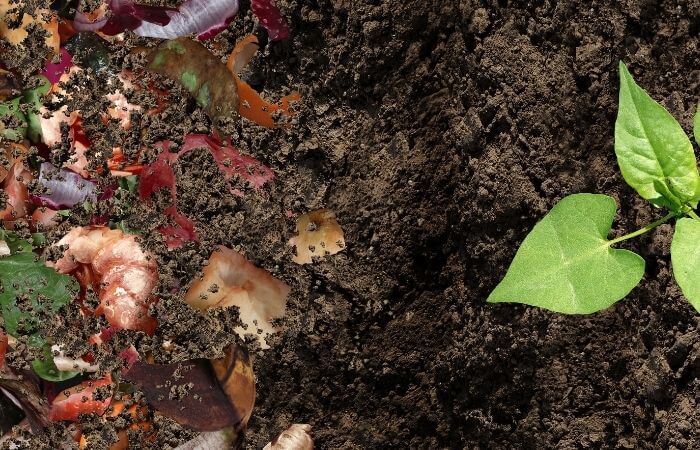
Using a compost starter is best for beginners to composting, for those who want to expand their current composting system, or for those who need to restart compost action due to destruction from weather or poor green-to-brown ingredient ratio.
Come along to learn all you need to know about compost starters, how they work, and how they can benefit your garden and kitchen composting methods!
What Is A Compost Starter?
A compost starter is a blend of active composting microbes and ingredients that acts as a catalyst to speed up the processing time of a fresh compost batch.
Not every compost starter brand has the exact same ingredients. Some use specific types of bacteria or add in lime or fertilizers to make them more active.
Some compost starters are in liquid form, while others are granular.
A dry, granular compost starter will need moisture to activate the microorganisms, making them ideal for compost that is already damp.
You can also find compost starters selling as compost boosters, compost accelerators, or compost activators. All of these are still the same product type, so don’t let it confuse you.
A good compost starter will have a host of beneficial elements inside that all work together to increase the digestion of brown and green compost ingredients, including:
- Bacteria – Bacteria play a huge role in compost decomposition. Bacteria, such as Actinomycetes, rely on nitrogen-rich compost ingredients, such as vegetable scraps and grass clippings, for energy to continue digesting the material into a fine soil amendment. The more types and number of beneficial bacteria you have feasting on your compost, the faster it will process.
- Microbes – Microbes, such as fungi or molds, also work as a team with bacteria to break down compost material into basic mineral or nutrient content that will eventually feed your garden’s plants.
- Inoculants – Inoculants are specialized bacteria that especially love to work to fix nitrogen or act as a phosphate-solubilizer to increase the macronutrient levels in the compost. Most inoculants come in liquid form and include the important rhizobacteria group. Many brands also include different strains of fungal matter to increase the compost’s overall performance.
- Enzymes – Both fungi and bacteria excrete enzymes during the digestion and decomposition of compost. These enzymes help further break down the compost’s organic material, so it’s more readily digestible for other bacteria. The enzymes work especially well to break down woody or tough yard debris like the inner veins of leaves.
- Nitrogen – Since most compost piles struggle to provide enough nitrogen ingredients to balance out the carbon material, many compost starters include a nitrogen booster. Extra nitrogen gives fungi and bacteria the energy they need to multiply and establish a healthy colony that can work harder to break down carbon ingredients.
Trying to create an instant colony of hungry microorganisms in a newly-formed compost pile is not possible.
It takes weeks for compost conditions to balance out, so there are enough microbes to tackle a large volume of material.
As the fungi and bacteria decompose the compost materials, it creates a sustainable circle that then provides the microbes the food they need to stay active.
Adding in a compost accelerator to your composter will bring more microbes to the party, so things start with a bang and finish faster!
Speeding up the processing time by a few weeks can provide your garden with more nutrient-rich compost.
Do They Work?
Both commercial or homemade compost starters are very effective in getting your compost to heat up and begin processing so you can see faster results.
Compost starters are also helpful when you are having a challenging time keeping your compost in balance.
Most gardeners have an abundance of carbon ingredients, such as dry leaves or cardboard, they wish to process.
Without the addition of a compost accelerator, the extra nitrogen and bacterial action necessary to keep things moving would be a hassle to manage.
How To Accelerate Compost
You can accelerate compost by adding in a booster and by tending to your tumbler, bin, or pile more consistently.
To add in a compost accelerator, follow these quick steps:
- Dig down into the center of your compost material
- Add about two cups of granular or liquid compost starter, booster, or accelerator product and gently mix it into the material at the bottom of the hole
- If you use a granular product, you will need to activate it with water, so spray the product with a hose if your compost material is not damp, but do not soak the compost
- Cover the hole over with compost material
- Let the compost sit for two days, then turn your compost as usual
For the general acceleration of compost, always remember to add the proper 2:1 ratio of carbon and nitrogen ingredients.
Shred, chop, or tear ingredients into the smallest pieces you can manage to increase compost processing time.
Finally, mix or turn your compost every two to three days to keep moisture and oxygen levels in the pile even so the microorganisms can stay active and healthy.
Do You Need A Compost Starter?
Compost starters are a handy product, but they’re not necessary for home composting.
You can leave some complete compost in a tumbler so the beneficial microbes can transfer to the new batch or scoop up some free dirt from your yard that contains natural fungi and bacteria.
While you don’t need a commercial compost starter, they’re helpful for specific issues and work quickly to bring your composter back to optimal function.
Keeping your compost processing on schedule is the best way to control kitchen and yard waste and feed your garden’s plants, so they remain lush and beautiful!


